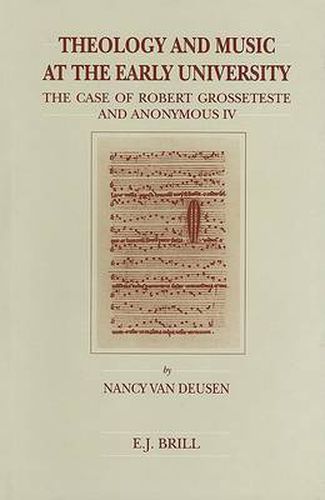Readings Newsletter
Become a Readings Member to make your shopping experience even easier.
Sign in or sign up for free!
You’re not far away from qualifying for FREE standard shipping within Australia
You’ve qualified for FREE standard shipping within Australia
The cart is loading…






This work unites important theological-philosophical subjects discussed by Robert Grosseteste throughout his prodigious output, with those exemplified by an anonymous contemporary English writer on music. It shows how music collaborated with the other liberal arts, operating within the early university curriculum as a ministry discipline. Music made accessible through the figurae of its notation, and through sound, otherwise nearly unapproachable, new Aristotelian concepts. The influence was reciprocal in that new Aristotelian tools and conceptualization greatly influenced music notation and style. Music theory has been studied in isolation, as pertaining only to music. This study relates music of the early 13th century to its intellectual context, overturning dogma, uncritically accepted since the beginning of this century, concerning so-called modal rhythm , and showing how contrary motion , rather than forming a musical convention, demonstrated a key Aristotelian concept.
$9.00 standard shipping within Australia
FREE standard shipping within Australia for orders over $100.00
Express & International shipping calculated at checkout
This work unites important theological-philosophical subjects discussed by Robert Grosseteste throughout his prodigious output, with those exemplified by an anonymous contemporary English writer on music. It shows how music collaborated with the other liberal arts, operating within the early university curriculum as a ministry discipline. Music made accessible through the figurae of its notation, and through sound, otherwise nearly unapproachable, new Aristotelian concepts. The influence was reciprocal in that new Aristotelian tools and conceptualization greatly influenced music notation and style. Music theory has been studied in isolation, as pertaining only to music. This study relates music of the early 13th century to its intellectual context, overturning dogma, uncritically accepted since the beginning of this century, concerning so-called modal rhythm , and showing how contrary motion , rather than forming a musical convention, demonstrated a key Aristotelian concept.